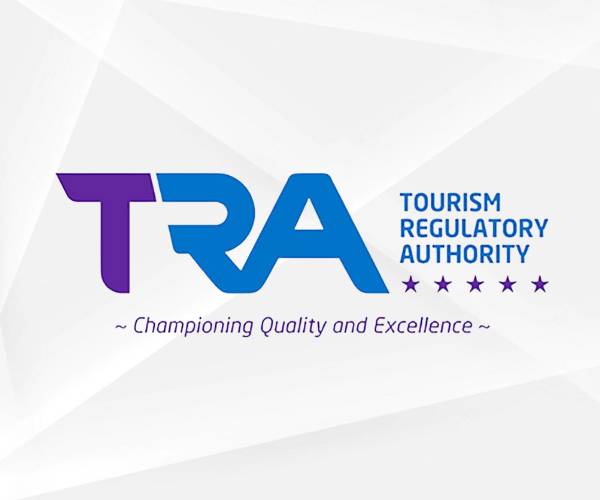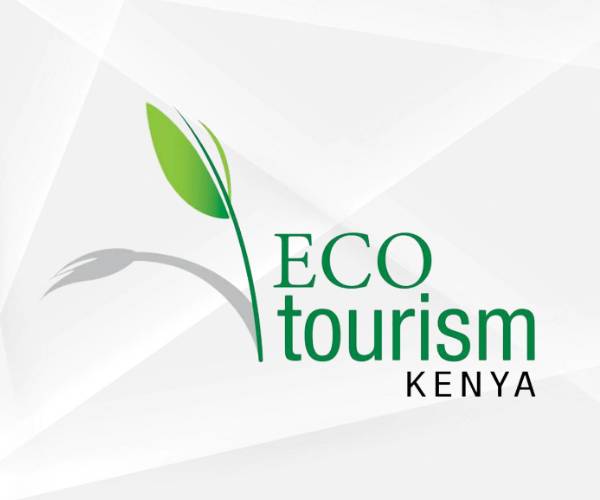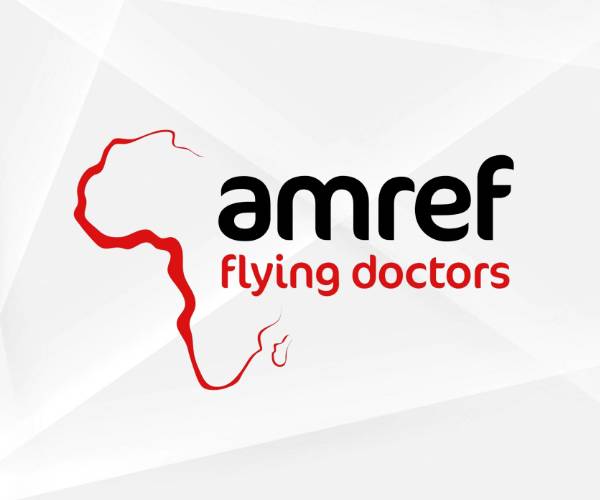Adeli Kenya Safaris, Kenya safari, African safari Kenya, Wildlife safari Kenya, Kenya wildlife tours, Kenya game drives, Safari holidays Kenya, Kenya safari tours 2025, Best Kenya safaris, Luxury Kenya safaris, Affordable Kenya safaris, Masai Mara safari, Amboseli safari, Tsavo National Park safari, Lake Nakuru safari, Walking safari Kenya, Hot air balloon safari Masai Mara, Birdwatching safari Kenya, Family safari Kenya, Photography safari Kenya, Cultural safari Kenya, Beach and safari Kenya, Private safari Kenya, Fly-in safari Kenya, Camping safari Kenya, Luxury tented camps Kenya, Best time to see the Great Migration in Masai Mara, Affordable family safari packages in Kenya, Luxury safari lodges in Kenya with private game drives, Walking safaris in Laikipia conservancy, Hot air balloon safari over Masai Mara at sunrise, Best birdwatching spots in Kenya during November, Family-friendly safari resorts near Nairobi, Photography tours in Amboseli with Kilimanjaro views, Cultural experiences with the Maasai tribe in Kenya, All-inclusive beach and safari packages in Kenya coast, Private guided safaris in the Chyulu Hills, Fly-in safari to remote areas of northern Kenya, Budget camping safaris in Tsavo East National Park, Luxury tented camps in the Mara Triangle for honeymooners, Best wildlife viewing in Kenya during the dry season (July-October), Ethical wildlife safaris in Kenya supporting conservation, Small group safari tours in Kenya for solo travelers, Wheelchair accessible safari options in Kenya, Kenya safari itineraries for first-time visitors, Best Kenya safari for seeing rhinos, Tanzania safari, African safari Tanzania, Wildlife safari Tanzania, Tanzania wildlife tours, Tanzania game drives, Safari holidays Tanzania, Tanzania safari tours 2025, Best Tanzania safaris, Luxury Tanzania safaris, Affordable Tanzania safaris, Serengeti safari, Ngorongoro Crater safari, Zanzibar safari, Tarangire safari, Lake Manyara safari, Ruaha National Park safari, Nyerere National Park (Selous) safari, Kilimanjaro safari (often combined with wildlife), Mahale Mountains chimpanzee trekking, Gombe Stream chimpanzee trekking, Best time to see the Great Migration in Serengeti, Luxury lodges in Ngorongoro Crater with wildlife viewing, Family safari packages in Tanzania with beach extension, Walking safaris in northern Tanzania, Hot air balloon rides over the Serengeti plains, Birdwatching tours in Lake Manyara National Park, Cultural tours in Tanzania combined with safari, Affordable camping safaris in Tanzania’s southern circuit, Photography workshops on Tanzania safaris, Honeymoon safari packages in Serengeti and Zanzibar, Wildlife safaris near Arusha for short trips, Chimpanzee trekking tours in western Tanzania, Best Tanzania safari for seeing the Big Five, Small group safari tours in Tanzania for solo travelers, Tanzania safari itineraries including Kilimanjaro trek, Ethical and sustainable safari options in Tanzania, Fly-in safaris to remote parks in Tanzania, Best time for wildlife photography in Tanzania, Tanzania safari deals and discounts, Serengeti Great Migration river crossing tours, best tour company in Kenya, best safari company in Kenya, best tour operator in Kenya, best travel company in kenya, best travel agency in kenya, best kenya safari company, nairobi safaris, nairobi kenya safaris, kenya safaris, safari in kenya, kenya wildlife safaris, kenya safari tour, kenya tours, Best responsible tours and travel agency in kenya, Best responsible tours and travel company in Tanzania, Best responsible tours and travel company in Zanzibar, Best responsible tours and travel company in Uganda, Best responsible tours and travel company in Rwanda, Best responsible tours and travel company in Botswana, Best responsible tours and travel company in Namibia, Best responsible tours and travel company in South Africa, Best responsible tours and travel company in Mauritius, Best responsible tours and travel company in Seychelles, Best responsible tours and travel company in Madagascar, Best responsible tours and travel company in Mozambique, Best responsible tours and travel company in Egypt, Best responsible tours and travel company in Israel, Best responsible tours and travel company in Thailand, Best responsible tours and travel company in East Africa, Best responsible tours and travel company in Eastern Africa, Best responsible tours and travel company in Africa, Best responsible tours and travel company in the world, Best responsible tours and travel company in Thailand, Best responsible tours and travel company in Malaysia, Best responsible tours and travel company in Croatia, Best responsible tours and travel company in Vietnam, Best responsible tours and travel company in Dubai, Best responsible tours and travel company in Singapore, Best responsible tours and travel company in Brazil, Best responsible tours and travel company in America, Best responsible tours and travel company in Canada, Best responsible tours and travel company in Europe, Best responsible tours and travel company in Greece, Best responsible tours and travel company in Turkey, Best responsible tours and travel company in Faroe Islands, Best responsible tours and travel company in Morocco, What is ecotourism, responsible travel, best green tourism company in kenya, best sustainale travel company in kenya, best ecotourism ompany in kenya, best sustainable travel practices, best things to to do in kenya, best things to to do in Nairobi, best things to to do in kenya, best things to to do in Mombasa, best things to to do in kenya, best things to to do in kenya, best things to to do in Nakuru, best things to to do in kenya, best things to to do in Naivasha, best things to to do in kenya, best things to to do in Maasai Mara, best things to to do in kenya, best things to to do in Kisumu, best things to to do in kenya, best things to to do in Amboseli, best things to to do in kenya, best things to to do in Tsavo West, best things to to do in kenya, best things to to do in Tsavo West, best things to to do in kenya, best things to to do in Samburu, best things to to do in kenya, best things to to do in Tanzania, best things to to do in kenya, best things to to do in Zanzibar, best things to to do in kenya, best things to to do in Uganda, best things to to do in kenya, best things to to do in Uganda, best things to to do in kenya, best things to to do in Rwanda, best things to to do in kenya, best things to to do in Mauritius, best things to to do in kenya, best things to to do in Seychelles, best things to to do in kenya, best things to to do in South Africa, best things to to do in kenya, best things to to do in Mozambique, best things to to do in kenya, best things to to do in Madagascar, best things to to do in kenya, best things to to do in Zambia, best things to to do in kenya, best things to to do in Israel, best things to to do in kenya, best things to to do in Dubai, best things to to do in kenya, best things to to do in Thailand, best things to to do in kenya, best things to to do in Greece, best things to to do in kenya, best things to to do in Santorini, best Tour Operator in Kenya, bestTour Operators in Nairobi, Tours in Kenya, Travel Agency in Nairobi, safari, kenya safari, kenya tours, tours and travel kenya, eco safaris, ecotourism, eco tourism, responsible travel, green tourism, agro tourism, east african safari air, kenya tanzania tours, africa tours, masaimara safari, tanzania safari, kenya travel, africa safari, nairobi safari, kenya safari tours, african safari, kenya safaris from nairobi, kenya wildlife safari, serengeti safari tour, safar tours & travels, best tour operators, luxury african safari tours, best african safari for seniors, african safari and beach package holidays, africa safari camp, kenya safari packages, kenya safari holidays, uganda safari packages, best places to go on safari in africa, best african safari itinerary, kenya wildlife safari packages, deal africa, travel operators, tour africa safaris kenya, luxury safari company, east african safari packages, safari travel companies, top safari tour operators, african safari travel agent, africa travel deals, trip safari, best safari experience, african safari photography, kenya holidays 2018, kenya safaris from nairobi, kenya safari, kenya holiday packages, kenya holidays, weekend getaways in nairobi, holiday destinations in kenya, weekend getaways in kenya, kenya safari holidays, tours and travel kenya, domestic holiday packages in kenya, kenya safari packages, tour operators in kenya, kenya destinations, kenya holidays 2017, kenya travel, kenya tours, tours and travel companies in kenya, kenya safari tours, safari kenya, kenya holidays 2018, kenya safari prices, holidays in kenya, travel agencies in kenya, dubai holiday packages from kenya, cheap holiday packages in kenya, cheap holiday destinations in kenya, getaways in kenya, kenya safari all inclusive packages, kenya all inclusive resorts, cheap january holiday deals, dubai holiday packages from dubai, vacation places in kenya, affordable holiday destinations in kenya, holiday getaways in kenya, trip kenya, kenya safari beach holidays, kenya safari vacation packages, travel package holidays, best travel package deals, trip to kenya safari, kenya’s best DMC, Kenya’s best tour operator ‘ Kenya’s best travel agency , Africa’s best DMC , Africa’ best tour operator , best kenya tour companies, luxury tour companies in kenya , why I love kenya , #whyilovekenya , join up safaris kenya , budget safaris in kenya , flying packages kenya , beach safaris in kenya , top rated tour companies in kenya , rooftent camping in kenya, safaribookings , tripadvisor, photography safaris in kenya , , best Tanzania safaris , kenya and Tanzania safaris , Tanzania road safaris , Tanzania flying packages, dubai packages , south Africa holiday packages, Seychelles holiday packages , Mauritius holiday packages , easter holiday packages , Christmas holiday packages , Wildebeest migration, kenya wildebeest migration, wildebeest migration kenya, wildebeest migration in Kenya, masaimara national reserve, travel kenya, traveling to kenya, travelling to kenya, kenya travel advisory, kenya travel advice, travel in kenya, travel agents in kenya, travelling in kenya, traveling in kenya, kenya travel agents, travel to kenya advice, travel advice to kenya, travel agents kenya, travel advisory to kenya, travel agency kenya, travel advisor kenya, travel alerts kenya, travel agencies kenya, kenya travel agencies, travel deals kenya, travel diaries kenya, kenya travel tips, tour operators in kenya, kenya tours and safaris, tours in kenya, tours and travel kenya, tours kenya, tours of kenya, kenya tour companies, tours and travel in kenya, tour to kenya, kenya tours and travel companies, kenya wildlife tours, tours and travels in kenya, trip to kenya, trips to kenya, kenya trip, kenya trips, trip to kenya Africa, trip advisor kenya, kenya trip advisor, visit kenya, visiting kenya, kenya visit, where to visit in kenya, why do people visit kenya, kenya tourism, tourism in kenya, tourism kenya, tourism of kenya, kenya and tourism, kenya safaris, safaris in kenya, safaris kenya, kenya lodge safaris, african safaris kenya lodge safaris kenya, safaris to kenya, kenya camping safaris, kenya african safaris, camping safaris kenya, kenya tourist attraction, tourists in kenya, tourist attraction in kenya tourist spots in kenya, kenya tourists, kenya tourist spots, why do tourists visit kenya, kenya holiday, holidays in kenya, holidays to kenya, kenya holidays, holiday in kenya, holidays kenya, holiday to kenya, holiday kenya, kenya travel guide, travel guide kenya, kenya guide, travel guide to kenya, kenya information guide, kenya tour packages, kenya holiday packages, kenya vacation packages, kenya packages, holiday packages in kenya, kenya travel packages, holiday packages kenya, kenya package, kenya holiday package, kenya tour package, kenya package holidays, travel packages kenya, kenya safaris packages, places to visit in kenya, kenya places to visit, best places to visit in kenya, tourist places in kenya, places to see in kenya, kenya tourist places, places in kenya to visit, places to visit kenya, go kenya tours, go kenya, places to go in kenya, go to kenya, where to go in kenya, going to kenya, why do people go to kenya, why go to kenya, information on kenya, kenya information, kenya travel information, information kenya, information of kenya, holiday destinations in kenya, kenya destinations, tourist destinations in kenya, kenya holiday destinations, kenya tourist destinations, best holiday destinations in kenya, kenya as a tourist destination, holiday destinations kenya, blogs in kenya, travel blog kenya, kenya blogs, blogs travel to kenya, safaris in kenya, kenya safaris, safaris kenya, safaris to kenya, car hire Nairobi, car hire in Nairobi, nairobi car hire, car hire services in Nairobi, car hire kenya Nairobi, car hire companies in Nairobi, car hire nairobi kenya, cars for hire in Nairobi, car hire in kenya Nairobi, car hire services Nairobi, cheap car hire Nairobi, nairobi car hire services, car hire in nairobi kenya, car hire companies in nairobi kenya, car for hire in Nairobi, car hire companies Nairobi, 4wd car hire Nairobi, cheap car hire in Nairobi, car hires in Nairobi, nairobi airport car hire, 4×4 car hire Nairobi, car hire market, cars for hire nairobi , car hire Mombasa, car for hire Nairobi, car hire uganda , 4×4 hire Nairobi, car hire Tanzania, 4×4 car hire dar es salaam, 4×4 car hire Tanzania, car hire kenya, 4×4 car hire kenya, car hire in kenya , kenya car hire, 4×4 car hire Uganda, 4×4 car hire Arusha, kenya tours and safaris, tours in kenya, tours and travels in kenya, tours kenya, tours of kenya, tours to kenya, go kenya tours, tour to kenya , car hire companies in kenya , 4wd car hire kenya, go kenya tours and safaris, kenya wildlife tours, car hire services in kenya, terminal tours kenya, kenya tanzania tours, tours and travel in kenya , kenya budget tours , tours and travel jobs in kenya, tours and safaris in kenya , kenya adventure tours, tours kenya Tanzania, tour operators, tanzania tour operators, tours and travel kenya, tour operators in Tanzania, top tour operators, african tour operators, tour firms in kenya , car hire kenya rates , car hire in kenya prices, kenya car hire services, mombasa tour operators, cars for hire in kenya, car hire kenya prices, kenya safaris, car hire business in kenya, tour kenya, kenya wildlife safaris, safaris to kenya, kenya camping safaris, wildlife safaris kenya, african safaris kenya, kenya budget safaris, safaris kenya, kenya tanzania safaris, kenya african safaris, tour companies in kenya, kenya car hire companies, car hire services kenya, cheap car hire in kenya, tours and travel companies in kenya, tour and travel companies in kenya, kenya tour companies, executive car hire kenya, tour companies kenya, wildlife kenya safaris, safaris in kenya, travel companies in kenya , tourism companies in kenya, kenya tours and travel companies, tours and safaris companies in kenya, companies in kenya, list of companies dealing with travel tours in kenya, kenya tour, tours companies in kenya, list of tour companies in kenya, best companies in kenya, kenya companies, 4×4 camping, 4×4 holidays, camping 4×4, 4×4 excursion, kenya tours,kenya best hotels,best hotels in kenya,kenyahotels,honeymoon destinations in kenya, 4×4 kenya, Rooftemt camping in kenya, rooftent hire in kenya, Nairobi safari tours, mombasa safari tours, amboseli safari tours, nakuru safari tours, naivasha safari tours, lake bogoria safari tours, lake baringo safari tours, maasai mara safari tours, tsavo east safari tours, tsavo west safari tours, samburu safari tours, ol pejeta conservancy safari tours, aberdare national park safari tours.














